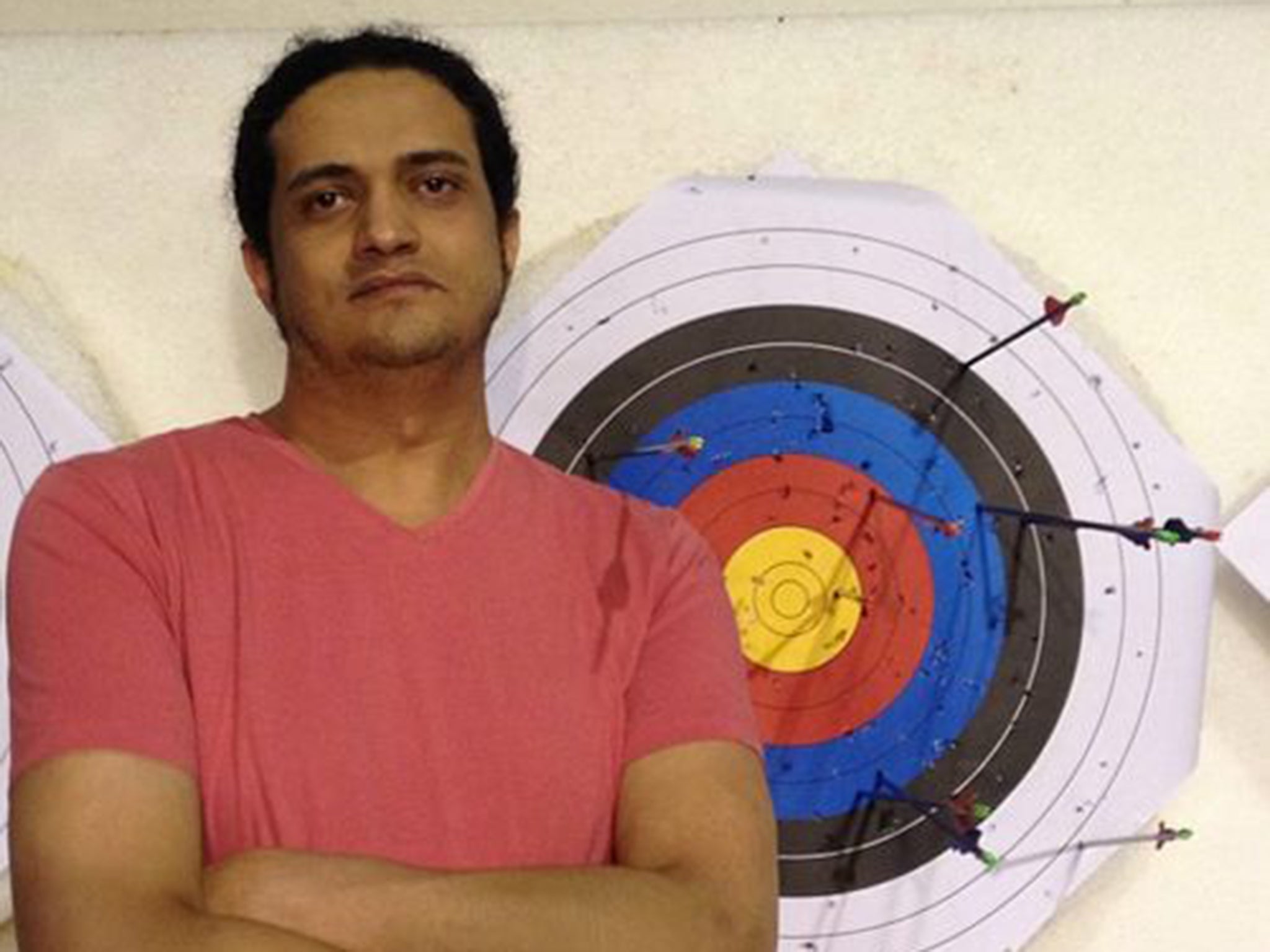Saudi Arabia executions: Sister of Palestinian artist sentenced to death for 'blasphemy' appeals to King Salman for pardon
Raeda Fayadh insists her younger brother, Ashraf Fayadh, is a practising Muslim and not an atheist

Your support helps us to tell the story
From reproductive rights to climate change to Big Tech, The Independent is on the ground when the story is developing. Whether it's investigating the financials of Elon Musk's pro-Trump PAC or producing our latest documentary, 'The A Word', which shines a light on the American women fighting for reproductive rights, we know how important it is to parse out the facts from the messaging.
At such a critical moment in US history, we need reporters on the ground. Your donation allows us to keep sending journalists to speak to both sides of the story.
The Independent is trusted by Americans across the entire political spectrum. And unlike many other quality news outlets, we choose not to lock Americans out of our reporting and analysis with paywalls. We believe quality journalism should be available to everyone, paid for by those who can afford it.
Your support makes all the difference.The sister of a Palestinian artist sentenced to death in Saudi Arabia for purported blasphemy has appealed to the Saudi monarch to spare his life and denied that her brother is an atheist.
Raeda Fayadh, of Beit Hanoun in Gaza, insisted that her younger brother, Ashraf Fayadh, 32, is a practising Muslim. She said he had inspired two of his foreign friends to convert to Islam and is innocent of any wrongdoing.
“I plead with King Salman to pardon my brother. I call on the minister of justice and the minister of interior, whom we all know are just, to look and see that there is no case here,” she told The Independent by telephone from Gaza.
Ms Fayadh, who holds a PhD in economics and is a university lecturer, said the entire affair had been fabricated by a young agent in the Committee for the Promotion of Virtue and Prevention of Vice (the Saudi religious police) with whom Mr Fayadh had a personal dispute. “This is a bad guy with a personal interest, who is out to get himself a promotion,” she said. “We are not apostates. We are Muslims and people who believe in God.”
Mr Fayadh, a member of British-Saudi art organisation Edge of Arabia, was sentenced to death on 17 November, in a verdict that has prompted renewed condemnation of Saudi Arabia’s record on human rights.
Mr Fayadh was quoted as denying that he is an atheist. He also said that his case was the result of a personal dispute. According to Human Rights Watch, he was first arrested in the southern Saudi Arabian town of Abha in 2013. A Saudi court initially sentenced him to 800 lashes and four years in prison but, he said, an appeals court recommended the charges and his punishment be stiffened. The lower court then issued its death sentence last week, which he is appealing.
The kingdom, which adheres to the puritanical Wahabi version of Islam, has executed more than 150 people so far this year, most of those by beheading.
Mr Fayadh, who was born in Saudi Arabia to Palestinian parents, denied the charges but nevertheless voiced repentance for anything in his book of poetry Instructions Within, published in 2008 in Beirut, that Saudi religious authorities may have deemed to be insulting.
Ms Fayadh said her father suffered a stroke after hearing of the sentence and that she had been taking tranquillisers since. Still, she said: “I believe the Saudi justice system is fair. Our family is hopeful.”
On Sunday the Palestinian Authority also called on Saudi Arabia to pardon Mr Fayadh, in a statement that took pains not to offend its financial benefactors in Riyadh. “We appreciate Saudi Arabia’s standing by our people and our cause,” it said, adding that the kingdom represents “the values of decent men, patience, tolerance and forgiveness when they can”.
The regime is using religion to maintain its authority. It is regressive for any regime to arrest people for their opinions. This is the kind of environment that produces people like Islamic State
A Palestinian petition attracted the signatures of 4000 artists, writers and academics, according to its organisers. They accused those behind the sentence of “a narrow view of literature and culture that puts freedom in the darkness”.
West Bank poet Faris Sabaneh, one of the petition’s sponsors, said: “The regime is using religion to maintain its authority. It is regressive for any regime to arrest people for their opinions. This is the kind of environment that produces people like Islamic State.”
Join our commenting forum
Join thought-provoking conversations, follow other Independent readers and see their replies
Comments